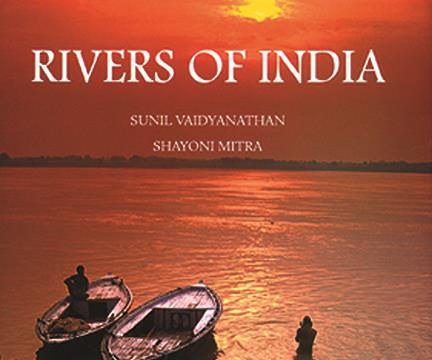Indian rivers are classic coffee-table book subjects. All those ghats, temples and praying pilgrims make for picture-perfect representations of ‘timeless nature’ and ‘ancient culture’. After countless books that breathlessly treat rivers only as a background for Hindus to endlessly offer aartis and ashes, one longs for something a little more contemporary and complex, something more conscious of the controversies and conflicts that have set rivers on fire today.
Rivers of India doesn’t hit all these buttons, but at least it tries to. It has the full complement of women in wet saris, sadhus and pandas from along the eight rivers it covers. But these are interrupted by occasional pictures of dams, anti-dam protesters along the Narmada, river-rafting crews on the Ganga, spanking new concrete bridges and a film poster of Ram Teri Ganga Maili. There are also glimpses of the mundane life along rivers: a fish vendor near the Godavari, a truck being cleaned on the Mahanadi, aerated drinks bottles being ferried across the Periyar, women planting paddy in the Krishna-Godavari basin. The accompanying text is informative and manages to pack a fair bit of geography, history and mythology, as well as popular culture references and ecological issues, into an accessible narrative. The writing is more nuanced than the pictures, most of which are nice but conventional. They are light years away from the images in Raghubir Singh’s The Ganges, the picture book that could make one look anew at even the pilgrims and the pandas. Despite its earnest ambition, this book disappoints.




